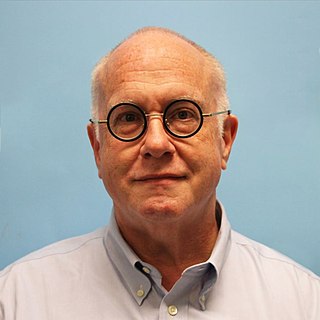The Communications Decency Act of 1996 (CDA) was the United States Congress's first notable attempt to regulate pornographic material on the Internet. In the 1997 landmark case Reno v. ACLU, the United States Supreme Court unanimously struck the act's anti-indecency provisions.
Reno v. American Civil Liberties Union, 521 U.S. 844 (1997), was a landmark decision of the Supreme Court of the United States, unanimously ruling that anti-indecency provisions of the 1996 Communications Decency Act violated the First Amendment's guarantee of freedom of speech. This was the first major Supreme Court ruling on the regulation of materials distributed via the Internet.
The blue ribbon is a symbol of high quality. The association comes from The Blue Riband, a prize awarded for the fastest crossing of the Atlantic Ocean by passenger liners and, prior to that from Cordon Bleu, which referred to the blue ribbon worn by the French knightly Order of the Holy Spirit. The spelling blue riband is still encountered in most English-speaking countries, but in the United States, the term was altered to blue ribbon, and ribbons of this color came to be awarded for first place in certain athletic or other competitive endeavours. It also may be applied to distinguished members of a group or commission who have convened to address a situation or problem; the usual usage is "blue ribbon commission" or "blue-ribbon panel".
The Turn the Web Black protest, also called the Great Web Blackout, the Turn Your Web Pages Black protest, and Black Thursday, was a February 8–9, 1996, online activism action, led by the Voters' Telecommunications Watch and the Center for Democracy and Technology, paralleling the longer-term Blue Ribbon Online Free Speech Campaign organized by the Electronic Frontier Foundation. It protested the Communications Decency Act (CDA), a piece of rider legislation for Internet censorship attached to the Telecommunications Act of 1996, and passed by the United States Congress on February 1, 1996. Timed to coincide with President Bill Clinton's signing of the bill on February 8, 1996, numerous websites had their background color turned to black for 48 hours to protest the CDA's perceived curtailment of freedom of expression. Thousands of websites, including a number of major ones, joined in the protest. The campaign was noted by major media outlets such as CNN, Time magazine and The New York Times.

Electronic Frontiers Australia Inc. (EFA) is a non-profit Australian national non-government organisation representing Internet users concerned with online liberties and rights. It has been vocal on the issue of Internet censorship in Australia.
Electronic Frontiers Georgia (EFGA) is a non-profit organization in the US state of Georgia focusing on issues related to cyber law and free speech. It was founded in 1995 by Tom Cross, Robert Costner, Chris Farris, and Robbie Honerkamp, primarily in response to the Communications Decency Act.

European Digital Rights is an international advocacy group headquartered in Brussels, Belgium. EDRi is a network collective of non-profit organizations (NGO), experts, advocates and academics working to defend and advance digital rights across the continent. As of October 2022, EDRi is made of more than 40 NGOs, as well as experts, advocates and academics from all across Europe.
In the United States, internet censorship is the suppression of information published or viewed on the Internet in the United States. The First Amendment of the United States Constitution protects freedom of speech and expression against federal, state, and local government censorship.

Michael Wayne Godwin is an American attorney and author. He was the first staff counsel of the Electronic Frontier Foundation (EFF), and he created the Internet adage Godwin's law and the notion of an Internet meme. From July 2007 to October 2010, he was general counsel for the Wikimedia Foundation. In March 2011, he was elected to the Open Source Initiative board. Godwin has served as a contributing editor of Reason magazine since 1994. In April 2019, he was elected to the Internet Society board. From 2015 to 2020, he was general counsel and director of innovation policy at the R Street Institute. In August 2020, he and the Blackstone Law Group filed a lawsuit against the Trump administration on behalf of the employees of TikTok, and worked there between June 2021 and June 2022. Since October 2022, he has worked as the policy and privacy lead at Anonym, a "privacy-safe advertising" startup.
The Electronic Frontier Foundation (EFF) is an international non-profit digital rights group based in San Francisco, California. The foundation was formed on 10 July 1990 by John Gilmore, John Perry Barlow and Mitch Kapor to promote Internet civil liberties.
The Electronic Frontier Foundation (EFF) is an international non-profit advocacy and legal organization based in the United States.

Jillian C. York is an American free-expression activist and author. She serves as Director of International Freedom of Expression at the Electronic Frontier Foundation (EFF), and a founding member of Deep Lab. She is the author of Silicon Values: The Future of Free Speech Under Surveillance Capitalism and Morocco - Culture Smart!: the essential guide to customs & culture.

Cyber Rights: Defending Free Speech in the Digital Age is a non-fiction book about cyberlaw, written by free speech lawyer Mike Godwin. It was first published in 1998 by Times Books. It was republished in 2003 as a revised edition by The MIT Press. Godwin graduated from the University of Texas School of Law in 1990 and was the first staff counsel for the Electronic Frontier Foundation. Written with a first-person perspective, Cyber Rights offers a background in the legal issues and history pertaining to free speech on the Internet. It documents the author's experiences in defending free speech online, and puts forth the thesis that "the remedy for the abuse of free speech is more speech". Godwin emphasizes that decisions made about the expression of ideas on the Internet affect freedom of speech in other media as well, as granted by the First Amendment to the United States Constitution.

Nitke v. Gonzalez, 413 F.Supp.2d 262 was a United States District Court for the Southern District of New York case regarding obscene materials published online. The plaintiff challenged the constitutionality of the obscenity provision of the Communications Decency Act (CDA). She claimed that it was overbroad when applied in the context of the Internet because certain contents deemed lawful in some communities and unlawful in others will be restricted due to the open access of the Internet. The plaintiff also sought a permanent injunction against the enforcement of the obscenity provision of the CDA. The court concluded that insufficient evidence was presented to show there was substantial variation in community standards, as applied in the "Miller test", and to show how much protected speech would actually be impaired because of these differences. The relief sought was denied, and the court ruled for the defendant. The Supreme Court subsequently affirmed this ruling without comment.
Lori Fena is an American internet activist, entrepreneur, and author, best known as the former director of the Electronic Frontier Foundation from 1995 to 1998 and author of "The Hundredth Window". Fena is currently the co-founder and VP of Business Development for Personal Digital Spaces and Founder and executive director of the Sustainable Information Economy.
David R. Johnson is an American lawyer specializing in computer communications. He is a senior fellow at Center for Democracy and Technology, and a former chairman of the Electronic Frontier Foundation.
Internet censorship in Syria is extensive; with numerous websites and online platforms being banned for political reasons. Internet usage is authorized only through state-run servers and people accessing through other means are arrested. Filtering and blocking was found to be pervasive in the political and Internet tools areas, and selective in the social and conflict/security areas by the OpenNet Initiative in August 2009.

Bassel Khartabil, also known as Bassel Safadi, was a Palestinian Syrian open-source software developer. He was detained without trial by the Syrian government in 2012 and was secretly executed in 2015. Human rights organizations claim that he was detained for his activities in support of freedom of expression, and the United Nations Working Group on Arbitrary Detention considered his detention to have been arbitrary.

FOSTA and SESTA are U.S. Senate and House bills which became law on April 11, 2018. They clarify the country's sex trafficking law to make it illegal to knowingly assist, facilitate, or support sex trafficking, and amend the Section 230 safe harbors of the Communications Decency Act to exclude enforcement of federal or state sex trafficking laws from its immunity. Senate sponsor Rob Portman had previously led an investigation into the online classifieds service Backpage, and argued that Section 230 was protecting its "unscrupulous business practices" and was not designed to provide immunity to websites that facilitate sex trafficking.

The EARN IT Act is a proposed legislation first introduced in 2020 in the United States Congress. It aims to amend Section 230 of the Communications Act of 1934, which allows operators of websites to remove user-posted content that they deem inappropriate, and provides them with immunity from civil lawsuits related to such posting. Section 230 is the only surviving portion of the Communications Decency Act, passed in 1996.








